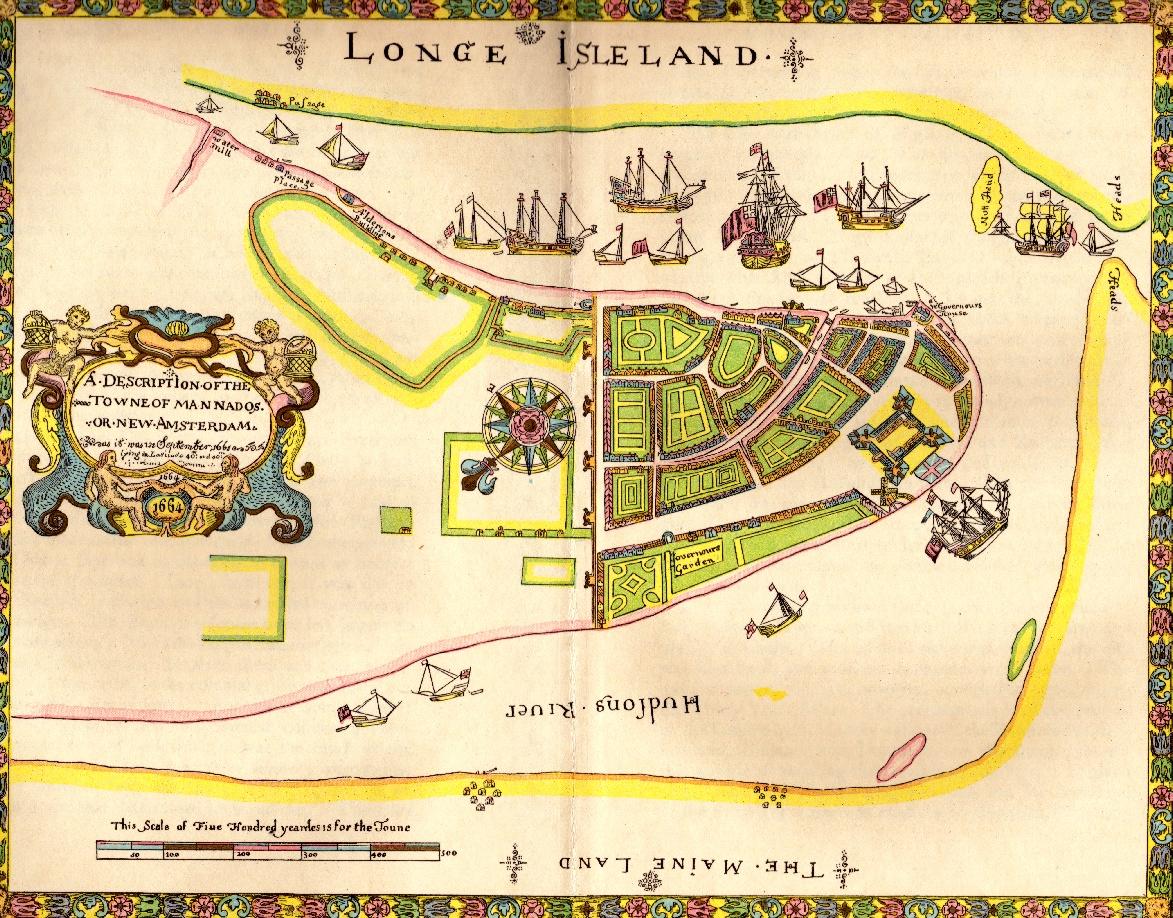From 1621 to 1662, the Dutch West India Company controlled New York’s Hudson River Valley with little regard to the native Iroquois population. Following the establishment of the West India Company and after the Dutch struggle to control the land for over a decade, the Dutch Parliament bought Manhattan from the Iroquois Nation in 1626 (for twenty-four dollars or the equivalent of $1,000 today).
The company organized Dutch trade ventures, establishing trading posts, routes, and towns that are still prevalent today. The Dutch also traded their products for food, and most importantly, furs with the Iroquois Nation. By 1641, a war broke out between the native population, who hoped to regain control of Manhattan, and the colonists, resulting in over 1,000 deaths. However, the Dutch continued to control their established colony, New Amsterdam, until 1664 when it was passed over to British control and renamed New York.
In addition to its disregard for the native population, the Dutch West India Company brought the first eleven slaves to New Amsterdam in 1626. Moreover, the English greatly expanded the use of slavery and by 1703 more than forty-two percent of households had slaves. The epicenter of the economy that was established by the Dutch continued on into the twenty-first century. New York remains one of the most active centers of finance and economy in the world.
 New York Historical Society Library
New York Historical Society Library